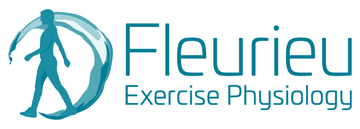Thyroid issues are some of the most common endocrine disorders worldwide but what is a thyroid and why should I care about mine?
Well, our thyroid is a small butterfly shaped gland located within our throat near the base of our neck. Whilst it is small, our thyroid gland is extremely important as it acts as a factory and mailman to create hormones and send them around our body as messages to keep our body healthy. This is how we maintain energy for activity, regulate our heart, lung, muscle, bone, and digestive function. It even helps with our skin and brain development!
What happens when I have issues with my thyroid?
Like other parts of our body, sometimes our thyroid can get a little confused and can start to overproduce (hyperthyroidism) or under produce (hypothyroidism) these hormones which can make it difficult for our body to maintain optimal health and function. There are also other conditions which affect the thyroid, but right now we are focusing on hypothyroidism.
Whilst we cannot see our thyroid and hormones there are a few indicators that our body is not receiving the hormones it needs. Frustratingly, some of the symptoms of hypothyroidism and hyperthyroidism overlap. However, the most common symptoms of hypothyroidism include.
- Fatigue
- Weight gain
- Swelling
- Feeling cold all the time particularly in hands and feet
- Depression
- Constipation
- Muscle cramps
- Headaches and brain fog
- Dryness or thinning of hair, eyebrows, nails, and skin
- Low libido and heavy menstrual cycles
- Numbness and/ or tingling
- Low heart rate and high cholesterol levels.
How do we treat it?
If hypothyroidism is left untreated, the symptoms and effects can slowly become more severe. If you suspect you have hypothyroidism it is important to chat to your doctor so that they can conduct a blood test, physical exam and have a look at your medical history including any past surgeries or treatments which might also impact hormone function. Whilst hypothyroidism cannot be cured, medication to increase hormone supply within the body and exercise is a great management option to help improve symptoms associated with the condition.

How does hypothyroidism change the way I exercise?
When someone has hypothyroidism, the reduced production and release of hormones mainly impacts the cardiovascular system. This reduces our metabolism meaning less blood flow and oxygen is provided to the working muscles when doing daily activities. Because metabolism is affected, people with hypothyroidism often feel tired doing activities of daily living, working and exercising.
Whilst the effects of low thyroid function sound scary, and sometimes moving might be the last thing you feel like doing, it is important to work on regular exercise to help improve and manage symptoms of hypothyroidism. Regular exercise can help to increase levels of two important hormones called T3 and T4. This is good news as it means there are more of these hormones available for use in the bloodstream and helps to reduce some of our symptoms.
What exercise is best with hypothyroidism?

Whilst it is best to get a mixture of both aerobic and resistance (muscle strengthening) exercise in, it is important to find movement which is enjoyable to you. If you find yourself tired, walking laps around a pool, going for a few short walks a day or even parking the car a little further away from the shopping centre is a great place to start. It is best to aim for around 150 minutes of aerobic activity weekly and complete muscle strengthening exercise 2-3x weekly. If you are new to exercise, just starting with 1-2 sessions a week at a low intensity is a great way to start moving without dramatically increasing fatigue levels. Remember it is best to focus on consistency and start slow rather than attempt too much too quick and burn out after a few weeks Consistency is key!
How a professional can help?
If you find that some exercise is increasing your symptoms, you don’t know how to start, or if you have a few other injuries or conditions which impact your ability to exercise then it is time to chat to a professional.
Exercise Physiologists can help to tailor an individualised and slowly progressive exercise program based on your body’s specific needs. We understand hormones and hypothyroidism and we can help determine which life tasks or movements can be particularly taxing and start forming a plan to make day to day life a little easier. We can also help to modify exercise to improve mental health, sleep quality and help manage other specific symptoms you may have.
If you or someone you know might benefit from seeing us or you simply would like to know more, please do not hesitate to email us at admin@fleurieuep.com.au or call us on 0423 085 884.




